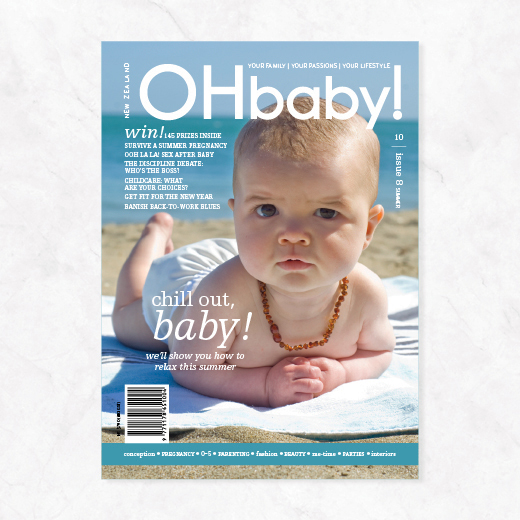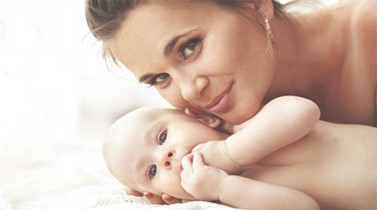Sing it loud! Music as therapy

Singing to your children doesn't just entertain them, it also helps their development.
Do you sing to your child, but find yourself quietly hoping he or she can't tell that you're off-key? Well, now you can put aside your reservations - music specialist, author and composer Julie Wylie says it's not whether you have a great voice that is important, rather it's that you make sure to include music in your baby's life, even before he or she is born. In fact, says Julie, music is the most important form of non-verbal communication we have with our children.
Although it is a relatively new concept in New Zealand, music therapy has long been popular overseas. It's used to address a variety of difficulties, for example, physical and intellectual disability, emotional disturbance, and grief, and to encourage personal growth. In children, it has been proven to promote physical and social development. It has the most profound effect on special needs children, for example those with Down syndrome, autism or learning delays, but it also benefits those considered "mainstream".
Music therapy uses musical instruments (from conventional chimes and drums, to household items such as pots and pans and milk bottles filled with dried pasta), scarves, mirrors, and other props. The classes that Julie runs at the Champion Centre in Christchurch encourage active participation from both children and parents, and cater for children from birth. She offers music therapy both individually and in small groups.
"Music is one of the greatest tools we have for communicating with our children," Julie explains. "An unborn baby responds to the musical elements of their mother's voice and the rhythm of her heartbeat from as early as 20 weeks after conception. In my sessions, I've seen very young babies respond to differing rhythms and beats."
"Each individual responds to, and interprets music differently. Although it is processed by the right side of the brain, music actually engages the whole of the brain.
"I see babies appear to have no response at all, when in fact, they are quietly absorbing it and often they are taking it all in at a far deeper level than those who rock and jiggle to the beat.
"Parents often lack confidence in their own musical abilities, but I've seen parents who thought they weren't musical at all compose beautiful songs and lullabies by taking the lead from their children and doing what feels natural. Music gives parents permission to play, and to interact with their children on another level, which is so wonderful."
So what exactly do children gain from music? Perhaps the question should be is there anything they can't gain from music? According to Julie, as children and their families learn to play musically, they are encouraged to explore their own abilities and develop fluency.
"Music can be used for so many things," says Julie. "It can calm, and it can stimulate. It encourages creativity, courage, development of social skills, patience, perseverance, and builds self-esteem.
"Through playing musically, families can learn to incorporate singing and music into their everyday lives, changing the words to suit their own daily routines. For example, instead of telling your child, 'It's time to have a bath,' you might sing, 'Johnny is going to get in the bath,' and then break that down into further steps, for example 'Now Johnny takes off his socks'. This makes what is basically a mundane, daily process far more attractive to a young child, while helping him or her to make sense of their world."
She says she supports the idea of popular community-based organisations such as Mainly Music, but says the large number of children in each group can be counterproductive. Ideally, she recommends a group of no more than three or four children.
Another important factor is repetition - using songs, rhythms and sounds that children can recognise. For example, Julie starts her group classes by ringing a chime. The children recognise this and respond accordingly by going silent.
Julie, a former high school teacher, first discovered her passion for music while working as a bank teller - she would sing while counting out change - and after completing a degree in music, she launched herself into sharing that passion with the world. She has presented workshops and papers internationally on the therapeutic use of music, and has won a number of awards for her work.
For the past several years, Julie has been running a specialist music therapy service at the Champion Centre in Christchurch. Attached to Burwood Hospital, the Champion Centre offers family-based intervention services for children with disabilities and learning delays, with programmes ranging from traditional speech and language therapy and physical therapy, to the more subjective areas of play and music therapies. But although music therapy is particularly powerful for children with disabilities or learning difficulties, she says music therapy is not just for children with special needs.
Emma Fahy is a super busy mum! Her children have all inherited her eclectic taste in music, and her dreadful singing voice.

AS FEATURED IN ISSUE 8 OF OHbaby! MAGAZINE. CHECK OUT OTHER ARTICLES IN THIS ISSUE BELOW















